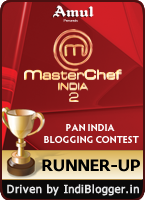1) Happy Writers write good books. Ideas appear in mind.
2) Find your unique environment to write effectively. Some people like sitting in dark room, few want to sit in a lonely place in a garden, few like cafes
3) Talk to different people in this regard. Various conversation nd your stories will help a connection between writer and reader
4) Writers strugle with getting the work done (Productivity) and creating something worth reading (Creativity) . Make the process enjoyable, cultivating and fulfilling happy life whih includes writing.
The book is organized as follows. Part One: The Inner Gears
Part One: The Inner Gears
Part Two: The Process, Start to Finish
Productivity, Creativity, enjoyment
Attention and focus, creativity, self discipline and mindset.
Two characters engaged in a ongoing collaboration in the writer's brain.
The
Scribe and the Muse
First lesson of cognitive thought:
There is much more going in our brain than appears on the surface. Just like TV, got 100s of channel but very few worth watching
Thinking Fast and slow book : Kahneman
1) System 1 is automatic it relies on Gut feeling, habit, shortcuts on making decisions sometimes very effective. System 1 is terrible in access probabilities.
2) System 2 is effortful. when we concentrate on computer, math problems etc.
Productive and creative writers learn to tap in the automatic and intutitive processes as well as the intentional ones.
Scribe: Writing requires focus and discipline. Scribe
just means writing, putting your thoughts in words. But they are not writers.
Muse: Writers access intuition, creativity and productivity.
A successful writer should be able to balance between Scribe and Muse
Attention is the connection between our inner selves and the outer world. Focus is the act of directing our attention.
Control over focus is more important.
Most of the writers pick late night or early morning for their book writing. That is the time darkness silence the world demands and your focus and attention is at max.
Open awareness creates a mental platform for creative breakthroughs and unexpected insights.
Get in touch with muse with focused mind, less distraction and mind wandering. Should balane muse and scribe.
Take alternate period of focussed writing and open attention. This can be done using Pomodoro technique.
After working intentionally for a while take break. away from desk for less mentally taxing activity.
Most people get more work done in three - one hour block then in three hours stint.
Switch between scribe and mose.
Find right environment to focus :
away from distractions like mobile TV etc.
When you are stuck take a break from Muse:
Invite the mind to wander: Do your hoby work, or just gardening, playing music, dancing, cooking etc.
“A mind adrift lets your creative juices flow.”
Nine elements for the flow to occur:
1. Work that is challenging but within your abilities
2. Work with clear goals (you know what you need to do).
3. Immediate feedback through the activity itself
4. A complete focus on the action
5. A lack of distractions or mind wandering
6. Absence of fear of failure
7. Lack of self-consciousness
8. The loss of awareness of time passing
9. An overall sense of fulfillment or enjoyment
If you’re drafting, the words roll out smoothly. During revision, you become absorbed in the text and the process of refining it.
The state of flow connects you to the joy of writing.
Location for writing
You can pick your place for writing. it can be home backyard or ofice corner or busy cofeeshop
What matters isn’t so much where you go. What matters most is what you leave behind—the ringing of the phone, interruptions of coworkers, or a queue of unread email messages. Create distance from day-to-day distractions.
Shut off your distractions in laptop. Keep mobile away. Some internet blocking softwares are also available.
Block your time for writing. Choose most suitable time which you can dedicate everyday.
WHen you are stuck
Talk to yoursef like an imaginary reader. What input he
can give to you. Make notes of these points.
If you prefer a dose of adrenaline with your freewriting,
try “The Most Dangerous Writing App” by a former neuroscientist named
Manuel Ebert. It deletes everything you’ve typed if you pause for more than
five seconds. I picture Keanu Reeves in the movie Speed, thinking I cannot stop
typing, or all these words will die. The pressure to keep going might work for
you; experiment with it if you have trouble forcing yourself to continue
without judgment.
Use Freewriting in your daily practice.
Silence your inner critics. We always try to improve
our writing. silent for first draft.
Banish Multitasking.
Let mind wander for ideas. walking driving shower etc..
Creative process got 5 keys
1. Preparation – immersing oneself in the field and its issues
2. Incubation – time in which ideas churn “below the threshold of consciousness”
3. Insight – the “aha” moment when inspiration strikes
4. Evaluation – the process of determining whether the insight is worth pursuing
5. Elaboration – working with the insight

















Post a Comment